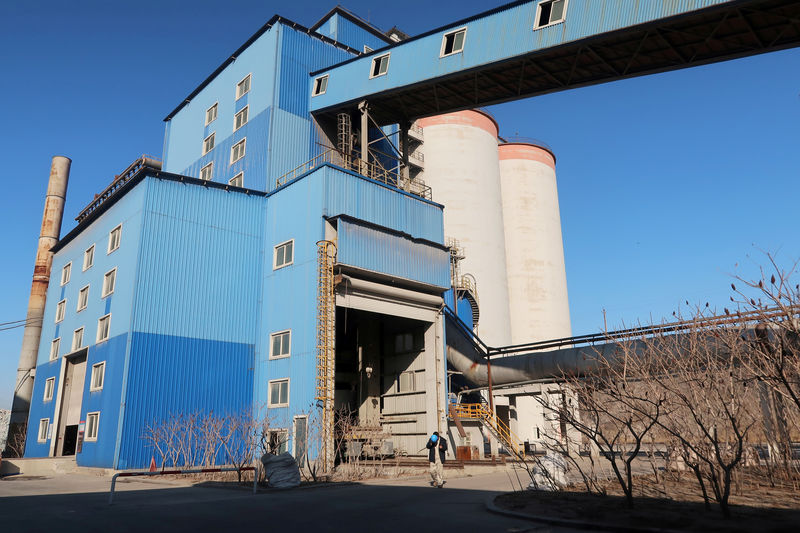 © Reuters. FILE PHOTO: Worker walks at a steel slag treatment plant of Ansteel in Anshan
© Reuters. FILE PHOTO: Worker walks at a steel slag treatment plant of Ansteel in AnshanBy Stella Qiu and Ryan Woo
BEIJING (Reuters) – Earnings at China’s industrial firms shrank for a second straight month in December on slowing prices and sluggish factory activity, piling more pressure on an economy in the grips of its slowest growth in nearly three decades.
The downbeat data points to more troubles ahead for the country’s vast manufacturing sector already struggling with a decline in orders, job layoffs and factory closures amid a bitter trade dispute with the United States.
China’s economic growth slipped to 6.6 percent last year, the weakest expansion in 28 years, stoking fears of a sharper slowdown if the current U.S.-Sino trade talks fail to stop further tariffs from being implemented after a 90-day truce.
Profits in December fell 1.9 percent from a year earlier to 680.8 billion yuan ($100.9 billion), weighed down by weak factory-gate prices and soft demand. This is on top of a decline of 1.8 percent in November – the first contraction in profits in nearly three years.
For the full year, profits rose 10.3 percent to 6.64 trillion yuan in 2018, easing from 2017’s robust pace of 21 percent, the National Bureau of Statistics (NBS) said on Monday.
The 2018 profit gain mostly came from the oil and extraction industry, along with ferrous metal and chemical sectors, He Ping, an official at the statistics bureau, said in a statement along with the data release.
Activity at 2,500 Chinese small- and mid-sized enterprises continued to contract in the fourth quarter last year despite a flurry of supportive government policies, a survey from the state planner showed in January.
The Small and Medium Enterprises Development Index stood at 93 last quarter, below the 100-mark that separates growth from contraction, according to the National Development and Reform Commission.
DEMAND REMAINS SOFT
Though traders are replenishing inventory ahead of the Lunar New Year holiday in early February, demand remains weak.
Aggravating the slowdown, the government has also vowed it will not relent on enforcing anti-pollution controls, refusing to accept mounting economic pressure as excuses.
That raises uncertainty on the overall boost to the industrial sector from support measures policymakers have pledged so far.
Beijing has promised to increase spending on infrastructure projects this year and boost consumption in areas such as automobile and home appliances.
The state-run enterprise China Railway is planning a record-high rail investment worth about 850 billion yuan in 2019, according to a report.
China’s producer prices rose at their slowest pace in more than two years in December. New orders – an indicator of future activity – contracted for the first time in at least a year in December.
Profits at China’s state-owned industrial firms rose 12.6 percent in 2018 from a year earlier, slowing from a 16.1 percent increase in the January-November period.
Fusion Media or anyone involved with Fusion Media will not accept any liability for loss or damage as a result of reliance on the information including data, quotes, charts and buy/sell signals contained within this website. Please be fully informed regarding the risks and costs associated with trading the financial markets, it is one of the riskiest investment forms possible.
Source: Investing.com




























